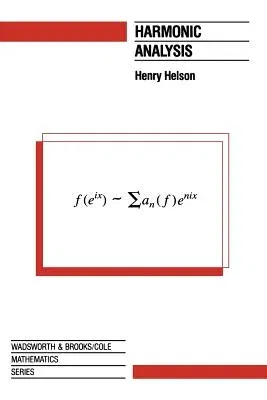The reader is assumed to know the elementary part of complex funCtion
theory, general topology, integration, and linear spaces. All the needed
information is contained in a usual first-year graduate course on
analysis. These prerequisites are modest but essential. To be sure there
is a big gap between learning the Banach-Steinhaus theorem, for example,
and applying it to a real problem. Filling that gap is one of the
objectives of this book. It is a natural objective, because integration
theory and functional analysis to a great extent developed in response
to the problems of Fourier series! The exposition has been condensed
somewhat by relegating proofs of some technical points to the problem
sets. Other problems give results that are needed in subsequent
sections; and many problems simply present interesting results of the
subject that are not otherwise covered. Problems range in difficulty
from very simple to very hard. The system of numeration is simple: Sec.
3. 2 is the second section of Chapter 3. The second section of the
current chapter is Sec. 2. Formula (3. 2) is the second formula of Sec.
3, of the current chapter unless otherwise mentioned. With pleasure I
record the debt to my notes from a course on Real Variables given by R.
Salem in 1945. I wish to thank R. Fefferman, Y. Katznelson, and A. 6
Cairbre for sympathetic criti- cism of the manuscript. Mr. Carl Harris
of the Addison-Wesley Publishing Company has been most helpful in
bringing the book to publication.

